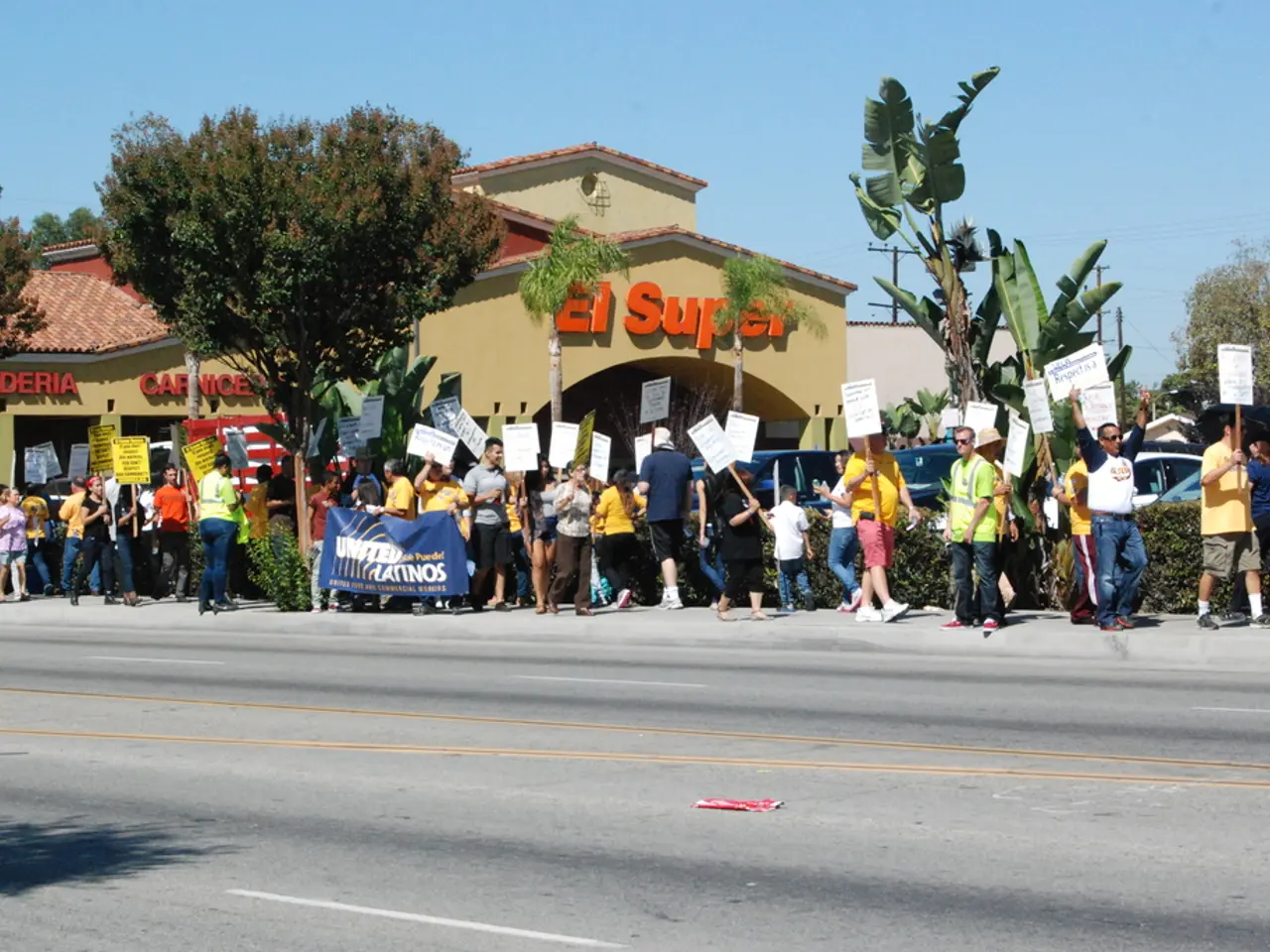Uneasy Partnership: Netanyahu's Israel Joins Forces with Europe's Radical Right
In a remarkable political development, the government of Israeli Prime Minister Benjamin Netanyahu has forged strong alliances with European far-right parties, such as Belgium's Vlaams Belang (VB) and Italy's Lega. This alliance, characterised by mutual ideological affinity and political support, is particularly evident in their shared views on nationalism, opposition to Islamic groups, and strong stances on immigration and security.
The foundation of this alliance lies in Netanyahu's far-right coalition in Israel, which heavily depends on partners committed to the Israeli West Bank settler movement. This alignment with nationalist and right-wing agendas resonates with parties like VB and Lega. These European far-right parties view Netanyahu's policies, particularly regarding the Palestinian territories and opposition to groups like Hamas, as congruent with their own political narratives that emphasise sovereignty, security, and resistance to what they perceive as Islamist threats.
This alliance provides Netanyahu with political leverage and legitimacy. Far-right factions within Israel’s parliament hold veto power, despite their limited numbers, illustrating his dependence on hardline positions that resonate with European far-right movements. Furthermore, far-right European parties often lend vocal support to Netanyahu's government, providing international platforms and narratives favourable to Israel's right-wing policies, reinforcing each other's political base.
Both Netanyahu’s government and parties like VB and Lega emphasise strict policies on security, border control, and opposition to Islamic militant groups such as Hamas. This shared narrative strengthens their ideological alliance.
In 2015, Israel's Ministry of Foreign Affairs (MFA) adopted "Guidelines on Communication with Populist Radical-Right Parties in Europe." However, under Netanyahu's current government, these guidelines were officially abolished. Diaspora Minister Amichai Chikli explicitly announced the end of Israel's boycott of radical-right parties in Europe.
This alliance reinforces the political survival of Netanyahu’s far-right coalition domestically and cultivates an international network of support among European far-right movements that share similar political priorities and perspectives on the Israeli-Palestinian conflict. Notably, during a visit to Israel, Geert Wilders, leader of the Partij voor de Vrijheid (PVV) in the Netherlands, openly expressed admiration for Israel and argued that the Israeli-Palestinian conflict is an ideological conflict, not territorial.
However, this alliance has not been without controversy. In a "hot microphone incident" during a visit, Netanyahu was inadvertently recorded criticising the EU and seeking support to undermine EU consensus on Iran and the Israeli-Palestinian conflict. These revelations have raised concerns about the potential erosion of democratic norms and the undermining of EU cohesion.
In conclusion, the alliance between Netanyahu's Israel and European far-right parties is a significant development in international politics. It highlights the growing ideological affinity between these parties and the potential for mutual political support and influence. As this alliance continues to evolve, it will be crucial to monitor its impact on domestic and international politics, particularly in the context of the ongoing Israeli-Palestinian conflict.
[1] Feldman, M. (2019). The Emergence of a Right-Wing Populist Illiberal Israel. Journal of Israeli History, 38(1), 27-52. [2] Golan, T. (2019). The Rise of Right-Wing Populism in Israel and Europe: Commonalities and Consequences. Middle East Policy, 26(3), 101-113.
The alliance between Netanyahu's government and European far-right parties, such as Belgium's VB and Italy's Lega, is a significant development in international politics, navigating the complex waters of general news (politics) by mutual political support and shared views on various issues like nationalism, immigration, security, and the Israeli-Palestinian conflict. The abolishment of Israel's boycott of radical-right parties in Europe, as announced by Diaspora Minister Amichai Chikli, has paved the way for a stronger ideological alliance between these parties, reinforcing the political survival of Netanyahu’s far-right coalition domestically and cultivating an international network of support among European far-right movements, as evidenced by Geert Wilders' open admiration for Israel during his visit.








